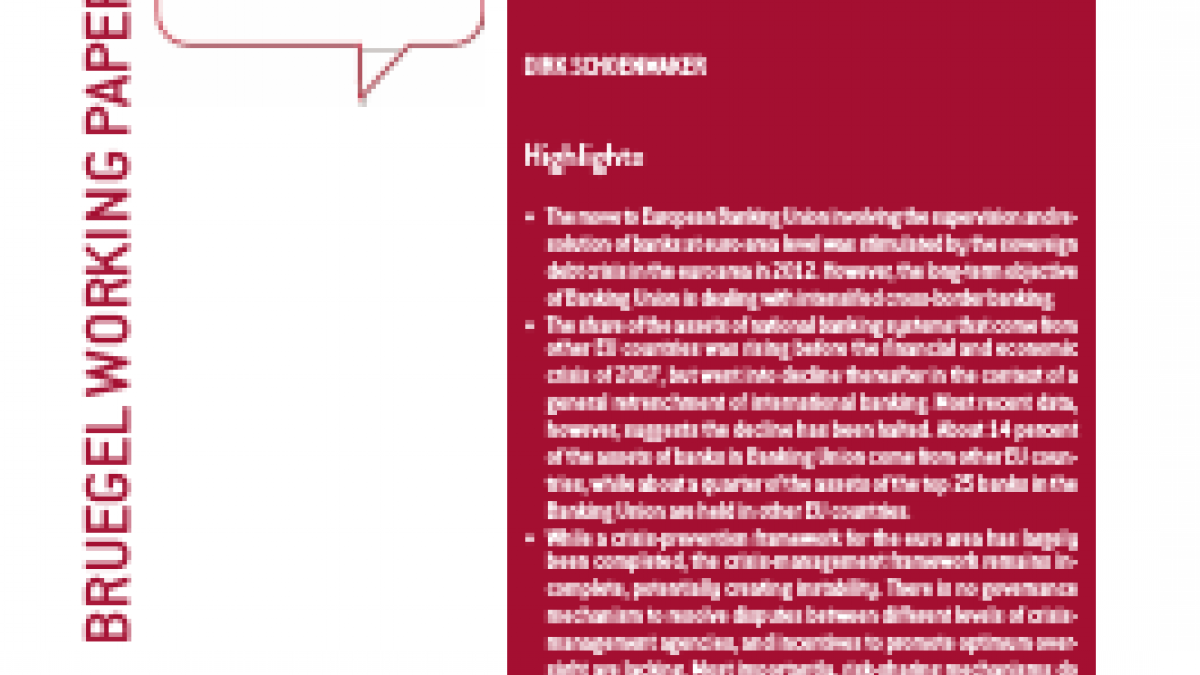Firmer foundations for a stronger European Banking Union
The idea of Banking Union has been instrumental in arresting the euro sovereign crisis. However the long-term rationale behind Banking Union is relate

Highlights
The move to European Banking Union involving the supervision and resolution of banks at euro-area level was stimulated by the sovereign debt crisis in the euro area in 2012. However, the long-term objective of Banking Union is dealing with intensified cross-border banking.
The share of the assets of national banking systems that come from other EU countries was rising before the financial and economic crisis of 2007, but went into decline thereafter in the context of a general retrenchment of international banking. Most recent data, however, suggests the decline has been halted. About 14 percent of the assets of banks in Banking Union come from other EU countries, while about a quarter of the assets of the top 25 banks in the Banking Union are held in other EU countries.
While a crisis-prevention framework for the euro area has largely been completed, the crisis-management framework remains incomplete, potentially creating instability. There is no governance mechanism to resolve disputes between different levels of crisis-management agencies, and incentives to promote optimum oversight are lacking. Most importantly, risk-sharing mechanisms do not adequately address the sovereign-bank loop, with a lack of clarity about the divide between bail-in and bail-out.
To complete Banking Union, the lender-of-last-resort and deposit insurance functions should move to the euro-area level, breaking the sovereign-bank loop. A fully-fledged single deposit insurance (and resolution) fund should be favoured over a reinsurance scheme for reasons of cost and simplicity.



